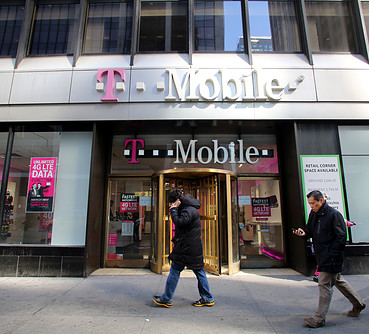- Home
- Electronics
- Phones
- Cell Phones
Cell Phones

Different Types of Cell Phones
One the the first questions to ask when searching for a personal, pocket-sized communication device is, "What will this be used for?" There are different types of phones that are geared toward different levels of usage, and phone carriers offer various plans depending on the type that a customer chooses. Here are the basic types of phones one can choose from:
- Basic Feature Phones These are the most basic phones one can purchase. These devices are extremely low-cost and recommended for those who are only looking to talk instead of texting or accessing the web. Flip-phones typically fall in this category. Generally speaking, most phones in this category will offer Bluetooth, GPS, and even WiFi capabilities.
- Advanced Feature Phones These phones are still nowhere near as feature-rich as smartphones, but they usually come decked with a larger screen than a basic feature phone and provide a slide-out keyboard. They also have better cameras and are better-suited for media playback. These phones are recommended for talk and text.
- Smartphones These devices provide everything that a laptop or desktop computer would in terms of customization and practical processing capability on a mobile level. Smartphones are ideal for those who intend to use the internet heavily on the run and need a device that will handle multiple applications and tasks simultaneously.
Choosing an Operating System
When sticking with a feature phone, the operating system (OS) isn't all that important to consider, since the level of customization and power offered by these devices is too basic. However, smartphones have a couple out-of-box operating systems that have a significant impact on how they're used. It's important to note that each OS has their own application market, so the applications that one can find on Android may not exist on iPhone, for example.
- Google Android This is currently the most popular mobile OS in the world, offering a full suite of customization options and existing on both low-end smartphones as well as top-tier ones.
- Apple iPhone Apple smartphones are considered luxury devices, offering seamless integration among their applications and a very smooth user experience. However, they're very costly.
- Microsoft Windows While not as popular as Android or iPhone, Windows phones offer everything one can expect from a desktop Windows experience on a five-inch screen.
What to Look for in a Smartphone
Because feature phones are basically used for talk and text, there isn't much to look for in one. However, there are many technical aspects of a smartphone that can make or break it. What to look for is strictly a matter of personal preference, and it would be difficult to recommend any particular arrangement of features, such as:
- Screen size, resolution, brightness (measured in nits) and display technology (TFT, LCD, AMOLED, etc.)
- Screen-to-body ratio
- Camera megapixels, ISO, aperture, lens diameter, flash type, pixel size, and format
- Video resolution, frame rate and format
- Processor (CPU) cores, clock frequency, and architecture
- Random access memory (RAM) amount and DDR classification
- Graphics processing unit (GPU) architecture
- Storage capacity
- MicroSD support
- Chassis material, sturdiness, durability, comfort, and appearance
- Hardware or software keys
- Hardware key positioning (on the back or the sides)
- Charging port type and capacity
- Battery capacity
- Speaker arrangement
- Hardware radio specifications
- Wacom and stylus support (for graphic design)
Are High-End Smartphones Worth It?
This is strictly a matter of personal need, but the short answer is yes. There are very practical reasons to pay close to a thousand for a complete "superphone", and it's sometimes even a necessity of one's job. The sheer processing power, multitasking capability, storage capacity, and connectivity of a smartphone is good enough for most users on the low and medium tiers, but there are certainly no drawbacks of aiming for the convenience of a higher-end smartphone if one can afford it.
Top 5 Routes for "Cell Phones"
- Phonearena.com This site is an excellent source for checking on and comparing the specifications of features phones and smartphones.
- Anandtech.com This site provides news, tips and how-to articles on all cell phones.
- Tomshardware.com Tom's Hardware is a highly reputable source for all things technology, including the latest smartphone news and advice.
- Androidauthority.com For those who love Android, this site covers everything there is to know about it.
- Macworld.com Macworld stays on top of all things Apple-related, including the latest in iPhone technology and how to take advantage of its offerings.
Similar Routes
What is a Route?

A route is a gateway to learning. Routes.com's mission is to go beyond search results by curating summaries and top "routes" for today's most popular subjects. Learn More
Suggest a Route
Are we missing a subject you think should be given a route? Suggest a new route. Learn More
Contribute
Become a routes.com contributor. Submit your route today! Learn More
Other Routes Like This
Phones
While most people these days prefer to carry a smartphone around with them, there are still good reasons to stick to a feature phone. While not as feature-rich, the basic variations still provide the essentials of a phone: long-distance contact with friends and family. Here are the main differences to look for when comparing the two types: Feature Phones These devices are recommended for talk and text only. While they do still offer internet access, it's typically very slow and limited in what it can do, which is hampered even more by a small screen and weak processing capabilities. These devices don't normally offer app support of any kind, but they're...
Unlocked Phones
Unlocked cell phones offer flexibility as well as long-term cost savings. In contrast to phones that are tethered to work on a specific network, these phones can work on any carrier's network. This opens up money saving opportunities as well as convenience. Consumers should consider the following if they are in the market for an unlocked phone: You are not bound to one network provider When you purchase a phone from Verizon, for example, you are bound to the plans and network that they offer. With a phone that is not purchased through a carrier, it is easy to switch between networks and pick the plan and cost that is right for you. International Travel Wherever...
T-Mobile Plans
T-Mobile plans are some of the best and easiest to follow in the industry. Here is a run-down on their most popular plans. T-Mobile uses the Simple Choice Plan instead of the annual service contracts it used to have. Inside the basic tier, a person will enjoy Music Freedom (endless music streaming), unlimited talk and text, and 2GB of data. The data, text and talk can all be used in Mexico and Canada at no extra charge. The Music Freedom option is one that many people find attractive. It allows for unlimited streaming of music through Pandora, Spotify, Apple Music and more without burning through data limits. The Binge On feature (any 6GB or higher plan includes...


